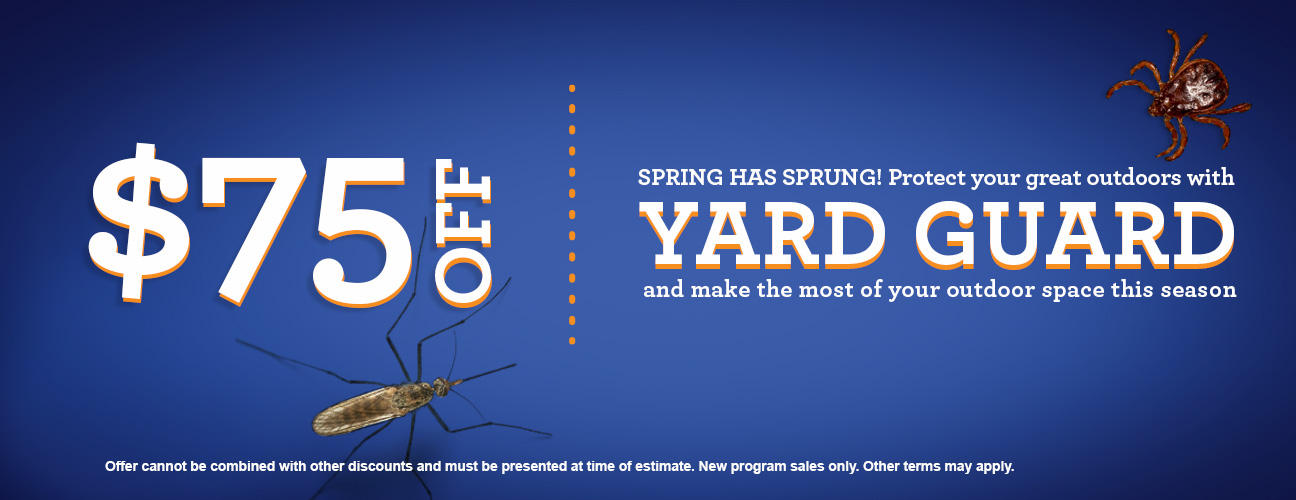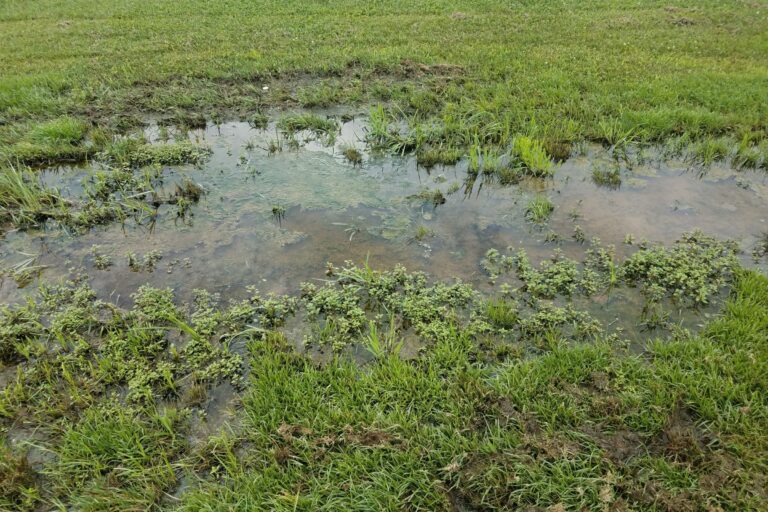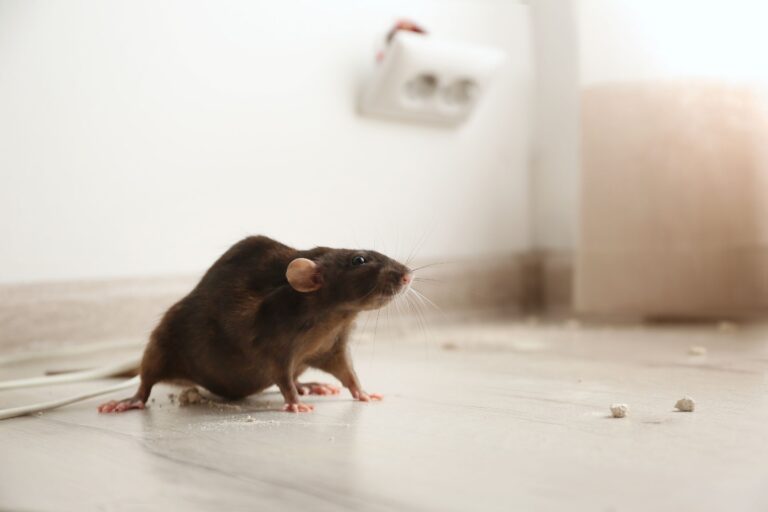Unmasking the Pests and Our Playbook to Take Down the Population in Your Yard
Spotted lanternflies – they sound like something straight out of a fairy tale, but these little troublemakers are more of a nightmare than a dream come true for your property. While they may not be as charming as fireflies, they certainly know how to crash the party in your garden.
Discovery – From Hidden Gem to Public Nuisance
Imagine this: It’s 2014, and the spotted lanternfly is discovered near Boyertown, PA – and they look quite pretty when they spread their spotted bright red and black wings. Fast forward less than a decade, and this pest has gone from an unknown critter to a well-known troublemaker in our area. Why? Well, they’re not exactly the polite guests you’d want in your garden. In fact, they’re responsible for nearly $325 million in annual agricultural losses. Yep, they’re not here for a tea party; like it or not, they’re here to wreak havoc on your outdoor space and vegetation that you love so much!
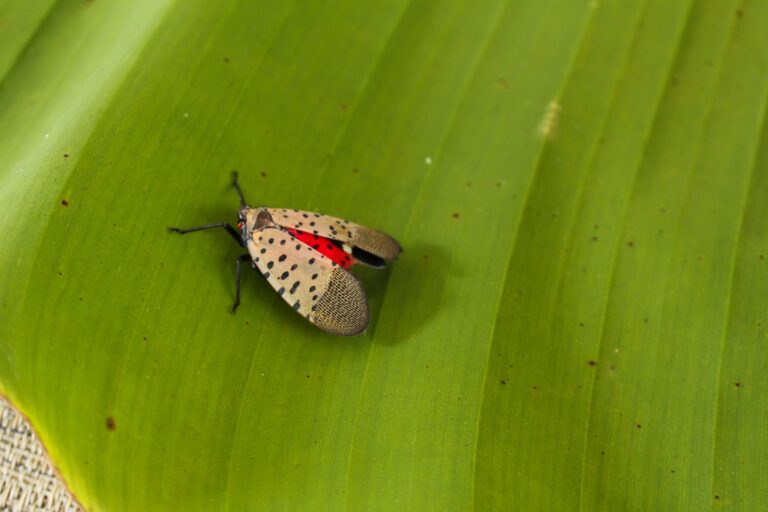
Concern – When Pests Get Fashionable
Now, don’t get us wrong; spotted lanternflies won’t sting you or nibble on your pets. So, no need to panic if one decides to land on your picnic blanket. But here’s the twist – they’re plant and tree terrorists! They adore infesting trees, especially the so-called “tree of heaven,” causing sap wilting, leaf curling, and sticky sap galore. They’re not picky eaters either; they chomp down on over 70 different plants, from grapes to apples and everything in between.
Why Are They So Darn Destructive?
Here’s the scoop: Spotted lanternflies have a sweet side – they excrete honeydew, a sugary treat that attracts other not-so-friendly insects like bees and wasps. It’s like a sugary invitation to an insect party. But wait, there’s more – this honeydew buildup can turn into a breeding ground for destructive fungi that can harm your precious plants. The U.S. Department of Agriculture is so concerned about it that they’re arming trees with insecticides to fight back!
And it’s not just plants they’re after – these little buggers have been known to damage cars, furniture, and even structures. They’re like the party guests who just can’t help but cause trouble.
Commercial Spotted Lanternfly Solutions
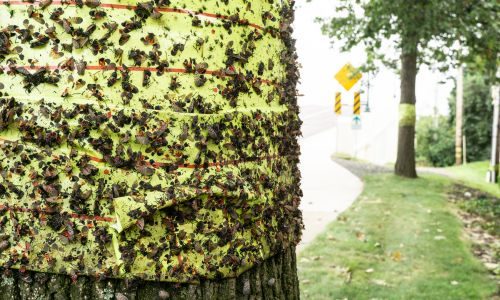
Residential Spotted Lanternfly Solutions
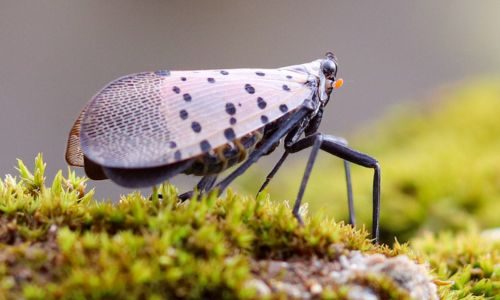
Do Spotted Lanternflies Have a Season? You Bet!
These critters lay their eggs in the fall, and they spend the winter incubating. Come late spring or early summer, the nymphs hatch, ready to wreak havoc. But here’s a tip: the easiest way to thwart their plans is to go after those eggs! You can tackle it yourself, armed with a stiff card, postcard, or scraper. Squish and scrape those eggs, and you’ll hear a pop as you put a stop to their baby lanternflies before they hatch.
Think that’s a bit too hands-on? You can also scrape the egg mass off the tree and dunk it into a container of frozen rubbing alcohol. Let them take a chilly dip, and that’ll be the end of their lanternfly dreams.
Detection – Becoming a Back Yard Detective
Detection a spotted lanternfly infestation early is crucial to prevent its spread and minimize damage to plants and trees. Here are signs that you may have a spotted lanternfly infestation:
-
Adult Lanternflies: The most obvious sign is spotting adult lanternflies with their distinct red and black wings, gray bodies, and white spots. They are about one inch long and can often be seen feeding on plants or flying around.
-
Nymphs: Look for nymphs in various stages of development. They start as black with white spots and develop red patches as they mature. They are typically found on plant stems and leaves.
-
Egg Masses: Lanternflies lay their eggs in masses that look like grayish putty. These egg masses can be found on trees, rocks, outdoor furniture, and other surfaces.
-
Feeding Damage: Lanternflies feed by piercing plant stems and sucking sap. This can cause wilting, yellowing, or browning of leaves and stems. You may notice sticky residue (honeydew) on plants, which can attract other pests like ants and wasps.
-
Sooty Mold: The honeydew excreted by lanternflies can lead to the growth of sooty mold on plant surfaces. This mold appears as a dark, powdery substance on leaves and branches.
-
Tree Damage: Heavily infested trees may exhibit oozing sap, sap-soaked bark, or wilting leaves. In severe cases, this can lead to tree decline or death.
-
Insect Activity: If you observe large numbers of lanternflies congregating on your property, especially in the fall, it's a sign of a potential infestation.
-
Plant Species Preference: Spotted lanternflies have specific preferences for certain plants, such as the invasive tree of heaven (Ailanthus altissima). If you have a lot of these trees on your property, it increases the risk of infestation.
-
Sticky Bands: If you've placed sticky bands around trees to trap lanternfly nymphs and they are covered in nymphs, it's a clear sign of an infestation.
-
Visible Egg Masses: If you notice the grayish egg masses on outdoor surfaces during the fall or winter, it's an indicator of an ongoing infestation or a potential future problem.
Enter Horizon Pest Control – Your Pest-Free Partner
Now, if all this bug squishing and egg dunking sounds like a bit too much adventure for your liking, why not call in the pros? At Horizon Pest Control, we’re the pest detectives you need. We’ll identify those pesky lanternflies and unleash our arsenal of pest-fighting tricks to keep them at bay. Consider it your insurance policy against a lanternfly invasion.
So, whether you’re a DIY warrior or prefer to leave it to the experts, remember that Horizon Pest Control has your back. We’re here to ensure your property stays lanternfly-free, so you can enjoy your outdoor haven without any uninvited guests!
Ready to reclaim your space? Give us a call at (201) 447-2530 to request your FREE consultation today! Don’t let lanternflies turn your garden into their own fairy tale nightmare.


